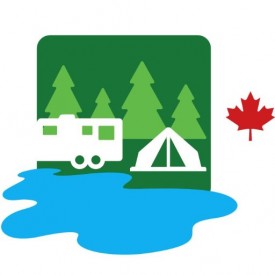Canadian Campgrounds Face ‘300 Percent’ Tax Increase, Says CCRVC

Representatives from the RV Dealers Association of Canada and the Canadian Camping and RV Council (CCRVC) met on Parliament Hill in Ottawa, Canada, recently to discuss the need for implementation of a fair tax regime for campgrounds across Canada and the need for increased investments in tourism policies and infrastructure upgrades.
“RVing and camping in Canada has a considerable economic impact. The manufacturing, purchasing, servicing and use of RVs contributes billions to the Canadian economy each year,” said Jean-Francois Lussier, chair of RVDA. “In fact, in 2011, the total economic activity associated with the Canadian RV industry reached $14.5 billion. There are over 4,231 campgrounds across Canada, each offering a unique experience for Canadians and international visitors.”
The promotion of the RV sector and proper infrastructure in Canada’s existing parks is crucial to the growth of the RVing and camping industries, as well as a prosperous Canadian tourism sector, the two associations stated. They added that the RVing industry contributes billions to the national economy, but campgrounds across Canada require infrastructural improvements in order to accommodate new camping and RV technologies.
“Our industry needs to be sure that we will be governed by a fair tax regime, including being eligible for the small business tax deduction,” said Robert Trask, chairman of the CCRVC. “Without clarification from the government, our members face retroactive tax increases of as much as 300 percent. Having campgrounds pay a higher tax rate than billion-dollar corporations is dumbfounding.”
During a compliance test conducted in 2015 by the Canada Revenue Agency, 3000 small businesses were audited by the CRA. Of the campgrounds that were audited, 1 in 7 were classified as a “specified investment business” and denied the small business deduction. The reclassification means as many as three years of substantial retroactive tax increases. Without clarifying the uncertainty, campgrounds are unable to increase investment and improvements in their business and cannot hire additional seasonal hiring due to financial concerns.
“A fair tax regime and investment in the necessary infrastructural updates for small businesses would benefit the family-owned campgrounds and RV dealerships that enable Canadians and visitors alike to experience the all that Canada has to offer,” said Lussier. “Canadians deserve the opportunity to enjoy our country’s natural beauty and heritage. The RV and camping industry help make that possible.”


